Opinion: Bristol Council elections - back to the future?

On 2 May Bristol citizens will vote, once again, for the councillors they want to see leading and running Bristol City Council. Those elected will, in line with the outcome of a referendum held in May 2022, introduce a committee system of governance. That’s a decision that has already been made.
So, what does this mean for Bristolians?
Two leading experts from UWE Bristol share their views on what lies ahead and offer their thoughts on the opportunities and challenges the newly elected council will face as they change to the committee system.

Robin Hambleton, Emeritus Professor of City Leadership:
“Some will worry that this major change represents a disturbing step back into the past. For over a century, up until 1999, Bristol’s city council operated a committee system of local governance.
“These concerns are legitimate. The central organisational challenge for the newly elected Bristol City Council will be to avoid this trap of going backwards and, instead, introduce an entirely new kind of committee system.
“There is, then, an exciting opportunity here to design a new way of governing our city that, instead of prompting newly elected councillors to retreat into inward looking discussions about how to organise city council services, offers them the opportunity to build on the successful Bristol One City Approach.
“When it comes to local democracy, Bristol has, since the reform riots of 1831, a well-established national reputation as a city that is ready to speak up for citizens and their democratic rights.
“The prize-winning Bristol One City Approach has, as civic leaders across the city will attest, broken new ground in recent years in bringing excluded voices into the governance of our city.
“After the May elections the newly elected council will have a great opportunity to break new ground in advancing the cause of inclusive and effective city governance by introducing a new kind of city governance, one that marries transparency and accountability with forthright international city leadership.”
Dr Thom Oliver, senior lecturer in politics:
“As Bristolians mark their calendars and ready their voting pencils for the upcoming local government elections on 2 May, our city stands on the precipice of significant governance change. With political parties canvassing doorsteps and distributing leaflets, Bristol is poised for a transformative shift in its political landscape, bidding farewell to the experimental era of elected mayors and embracing the dawn of the committee system.
“But what does this mean for Bristol's residents and electors? It signifies more than simply casting a vote—it's about actively shaping the policies and decisions that influence our daily lives. Advocates of the committee system depict a new way of governance where Bristolians have a seat at the table, decisions are made collaboratively, and the interests of all Bristolians.
“The committee system presents both opportunities and challenges. For councillors, there will be heightened involvement in shaping policy and decisions, and there may be greater accessibility for Bristol's residents to participate in the decision-making process.
“Gone are the days of a single figurehead steering the ship. Now, our leadership will be shared among councillors, elected to represent Bristol's diverse communities. For business and government, the committee system will not deliver a single figurehead for the city, yes, the councillors (not the voters) will elect a council leader, but with that individual having to rely on the support of the majority of councillors, they might not have such a clear and direct mandate to lead and direct the city.
“Make no mistake, this transition won't come without its hurdles. Cooperation and consensus are paramount for the committee system to function effectively, qualities often scarce in today's polarized political climate. The success of this new system hinges on constructive collaboration across party lines, particularly amidst current tensions between Bristol's largest political groups—the Labour Party and the Green Party.
“The big question will be around how it will work in practice. As the dust settles after polling closes on the evening of Thursday, May 2nd, all eyes will be on the balance of seats and the individuals elected. Their roles will be pivotal in determining how, and indeed if, the committee system delivers for Bristol.”
About Robin Hambleton:
Before Robin became an academic (in 1980), he worked for ten years in several English local authorities that used the committee system of local government. He has carried out extensive international research on local governance and has first-hand experience of working in Chicago, a city with a mayoral model of city governance.
About Dr Thom Oliver:
Thom co-leads the Bristol Civic Leadership Project with Professor Robin Hambleton and Dr David Sweeting (University of Bristol). The Bristol Civic Leadership collaboration has studied governance in the City of Bristol for a number of years. It commenced in 2012, prompted by the introduction of a mayoral system of governance in the city and has subsequently analysed the experience of this governance change for Bristol's citizens.
Related news

17 December 2025
Findings revealed from first UK study into experiences of mothers who are survivors of rape pregnancy
UWE Bristol academics have revealed the findings of the first UK-based study of the experiences of mothers who are survivors of rape pregnancy.

07 October 2025
Academic playing role in project to find hidden graves in Mexico using drone technology
A UWE Bristol lecturer is playing a part in a project using drone technology to locate concealed graves in Mexico.

16 September 2025
Dedicated liaison roles ‘instrumental’ for police forces to build trust with sex workers, research finds
A new study from UWE Bristol researchers has found that a dedicated liaison officer could help rebuild trust between the police and sex workers.

11 September 2025
New study to investigate augmented reality as an intervention for emotionally based school avoidance
A UWE Bristol researcher will support a new study exploring whether an augmented reality board game can help young people with emotionally based school avoidance (EBSA).

22 July 2025
Angellica Bell receives honorary doctorate from UWE Bristol
Angellica Bell, a prominent figure on British television and radio, has been awarded an honorary degree by UWE Bristol.

17 July 2025
Want social change? A deeper understanding could be key, study suggests
New study suggests a deeper understanding of social change could help close the gap between challenges and actions, especially on issues like climate change.

16 July 2025
Researchers launch support hub for people with visible differences and their families
A first of its kind website offering evidence-based psychological support for people with visible differences and their families has been launched by university researchers.
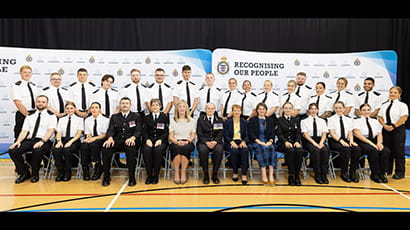
27 June 2025
UWE Bristol and Avon and Somerset Police renew partnership to advance police education
UWE Bristol and Avon and Somerset Police have signed a new 10-year agreement, extending their successful partnership to deliver high-quality, forward-thinking police education and training.
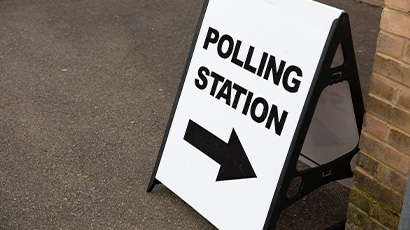
25 April 2025
Opinion: ‘Where is the vision in the WECA mayoral race?’
Dr Thom Oliver, senior lecturer in politics, gives his expert opinion as voters prepare to head to the polls to elect a new WECA mayor on 1 May.
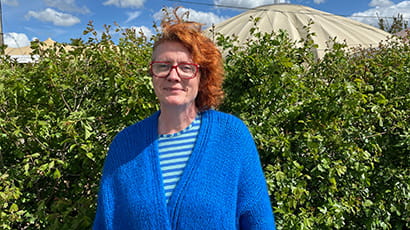
16 April 2025
UWE Bristol academic paper named as one of this century’s most-cited
A UWE Bristol academic has co-authored the third most-cited academic paper of this century, according to new analysis released by research journal Nature.

30 January 2025
Women exercising in gyms face barriers including body image and harassment, study finds
Women exercising in gyms often feel judged for their appearance and performance, leading to a persistent sense of inadequacy, according to a new study.
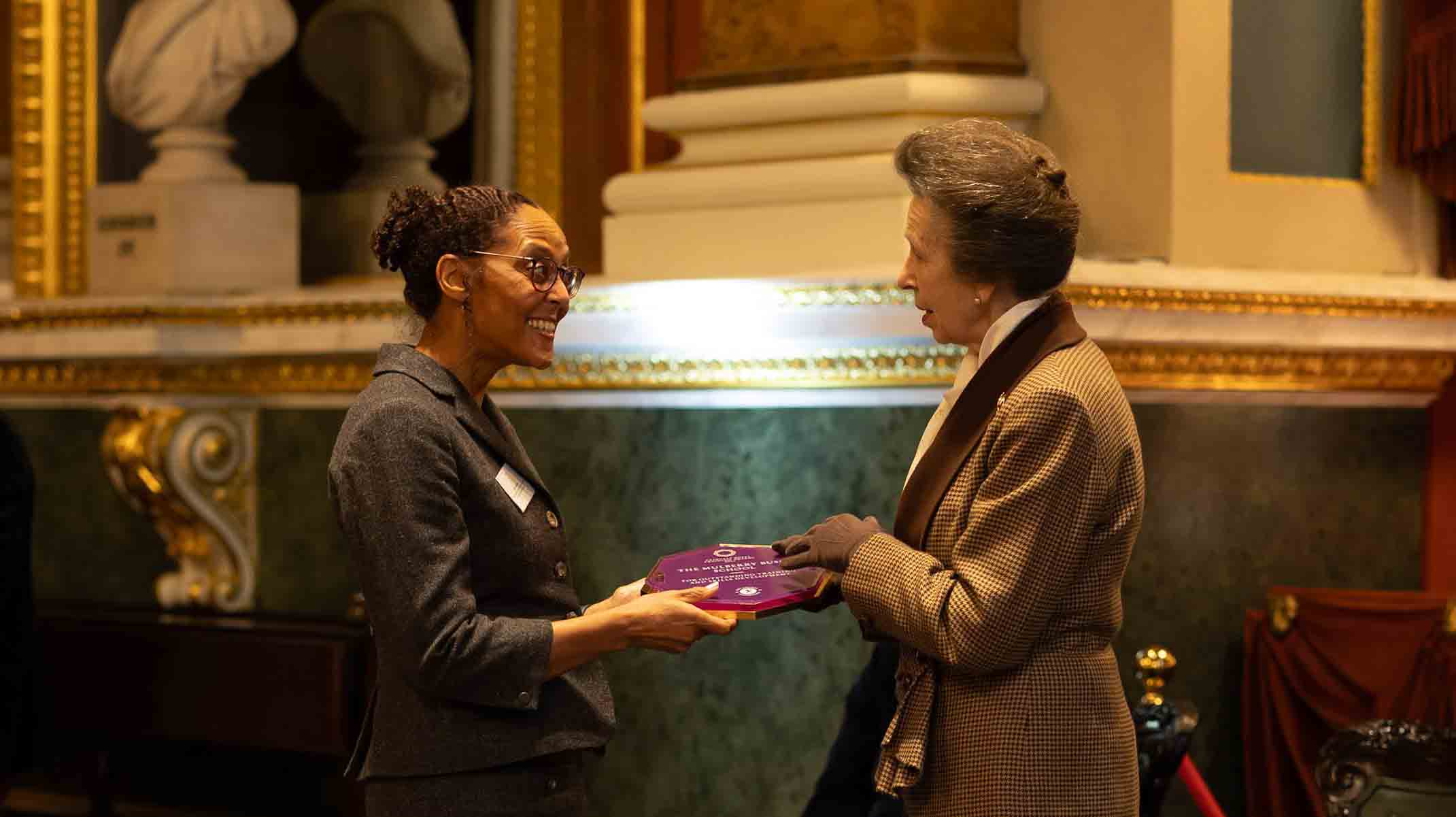
17 December 2024
‘One of a kind’ course accredited by UWE Bristol recognised with Princess Royal Training Award
A foundation degree accredited by UWE Bristol has been awarded a prestigious City & Guilds Princess Royal Training Award.
You may also be interested in

Media enquiries
Enquiries related to news releases and press and contacts for the media team.
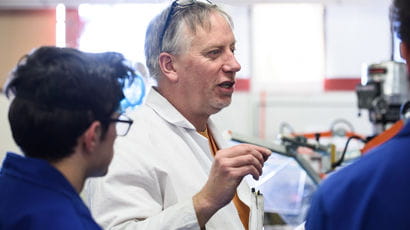
Find an expert
Media contacts are invited to check out the vast range of subjects where UWE Bristol can offer up expert commentary.






